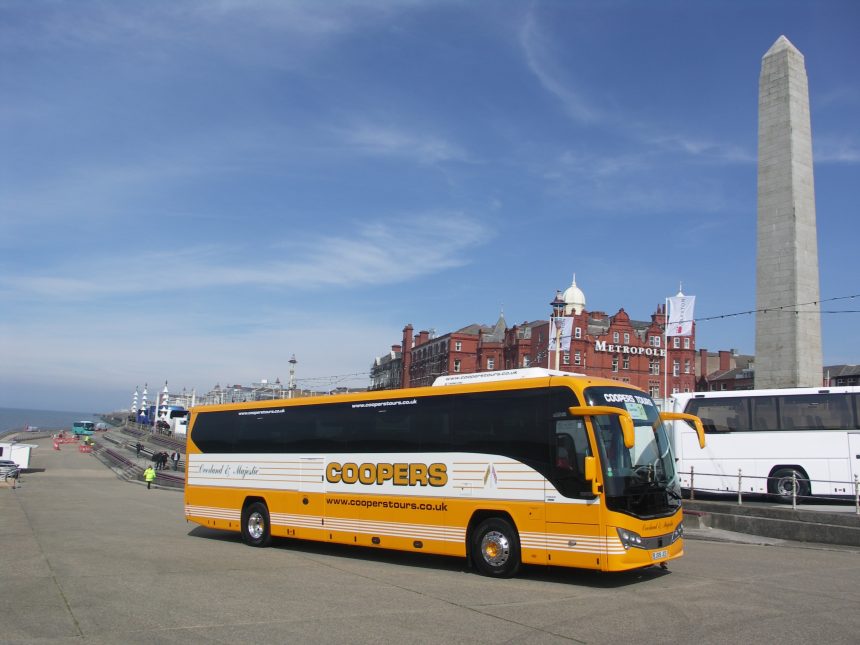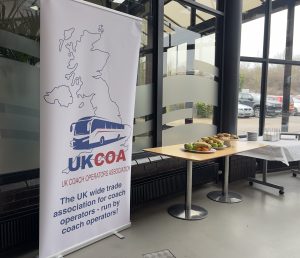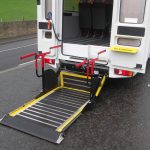Recruitment, net-zero, advocacy and diversity were among topics explored at this year’s UK Coach Operators Association (UKCOA)annual conference at Volvo Group in Warwick on 10 March.
The gathering continues to put those high on the agenda at both a local and national level. This year saw guest speakers from both the coach sector and government make presentations with a high level of engagement.
Mark Anderson of Anderson Travel and UKCOA Director of Operations Stephen Spendley opened with an update on UKCOA’s lauded driver academy scheme, partnered through the Department for Work and Pensions.
It has now successfully recruited and trained over 30 coach drivers. This provides a structured pathway for UKCOA members to engage with local job centres to recruit their own drivers.
The process is being finalised, but funding is now accessible for all members to cover the costs of training, which includes Driver CPC, medicals and practical and theory training, with a reported saving of approximately £2,500 per driver. The funding is open to long-term unemployed individuals, and there is no upper limit on recruitment.
Regulatory update
James Backhouse of Backhouse Jones provided a regulatory update on recent trends around Public Inquiries and preliminary hearings. Key concerns include:
- Increased use of conjoined hearings with drivers
- Increased use of single-issue hearings relating to bridge strikes and maintenance
- Recent revisions to the Guide to Maintaining Roadworthiness
- Changes to financial standing requirements and PSV record-keeping regulations.
Mr Backhouse stresses the importance of early identification of compliance issues and the role of auditing in mitigating risks. He also flagged potential legislative changes pending appointment of a new Senior Traffic Commissioner in 2025.
Candice Mason, Director of Masons Minibus and Coach Hire and Founding Director of Women in Bus and Coach (WiBC), emphasised the importance of greater diversity within the coach sector to ensure its workforce represents the communities it serves. Shifts and rotas are highlighted as a major challenge in recruiting more women.
In an update on the WiBC coach subgroup and steering group, Mrs Mason says WiBC aims to “drill down” on what the coach industry needs, and has launched an online community space to open conversations for practical ideas and support.
Political buy-in
Alex Mayer, Labour MP for Dunstable and Leighton Buzzard and member of the Transport Select Committee, gave a guest presentation that majored on the coach sector’s role in supporting the economy and net-zero goals.
In highlighting the problems that come with coach and bus being “lumped together,” Ms Mayer urges the industry to engage with politicians and emphasise how coaches align with government missions related to skills, economic growth and net-zero.
“It remains underrepresented in conversations,” she says, “and I hope that is something we can change. I urge [coach operators] to continue engaging in parliament. We can ensure coaches are recognised as a critical part of the UK’s economic future.” Ms Mayer also advocates expanding skills boot camps to include coach drivers and for greater recognition of the sector in policy discussions. She also stresses the need for robust industry data to strengthen advocacy efforts and address misconceptions about coach travel.
Zemo insights
Claire Haigh, Managing Director at Zemo Partnership, discussed the sector’s challenges in transitioning to net-zero, focusing on the high costs of battery-electric coaches and infrastructure barriers — and warning that net-zero will only succeed if it is “fair, affordable and convenient.”
Ms Haigh advocates a place-based transition strategy (i.e. greater inclusion of coaches in local transport plans) and the immediate adoption of low-carbon fuels. She also calls for a policy to bridge the differential costs in electrifying coach to provide long-term certainty to operators.
Zemo’s forthcoming policy gap map is due in June and will provide “detailed proposals” to support decarbonisation. Ms Haigh emphasises the importance of a “workable timeframe” and the development of a skilled green workforce to support the transition.
“We recognise gaps in policy for electrifying vehicles other than cars,” she adds. “It is time the government set out a proper strategy for coach and set an end date for [sale of new] internal combustion engine buses.”
Other updates
Other updates from UKCOA at the conference included news on its coach holiday bonding scheme, which is now live via partner the Association of Bonded Travel Organisers Trust with a preferential application fee to UKCOA members.
Peter Bradley, UKCOA Managing Director, outlined other ongoing concerns for coach including the PSVAR exemption deadline (for more information on the medium-term exemptions, see UKCOA’s column in the February edition of routeone), the Bus Open Data Service and its application to home-to-school (H2S) services (UKCOA is lobbying for closed-door H2S be removed from the requirement), and the Schengen Area Entry/Exit system.
Persistent parking challenges, particularly in London, were also discussed, while UKCOA also underlined its encouragement for coach operators to provide feedback to support future consultations.




























